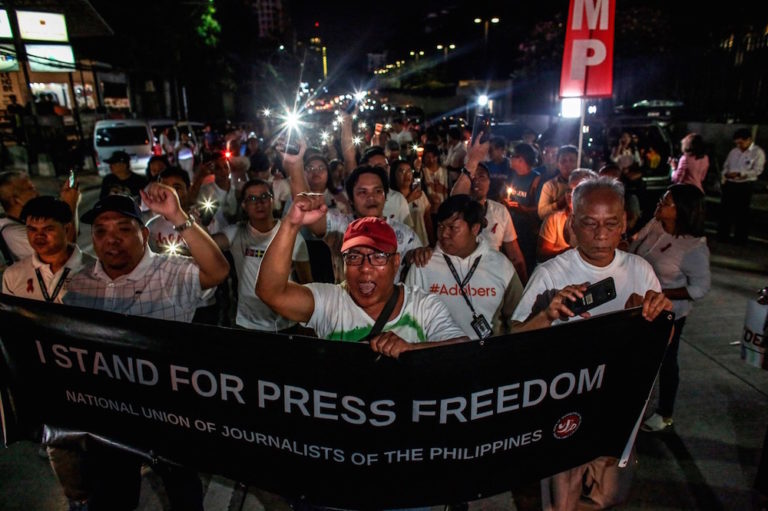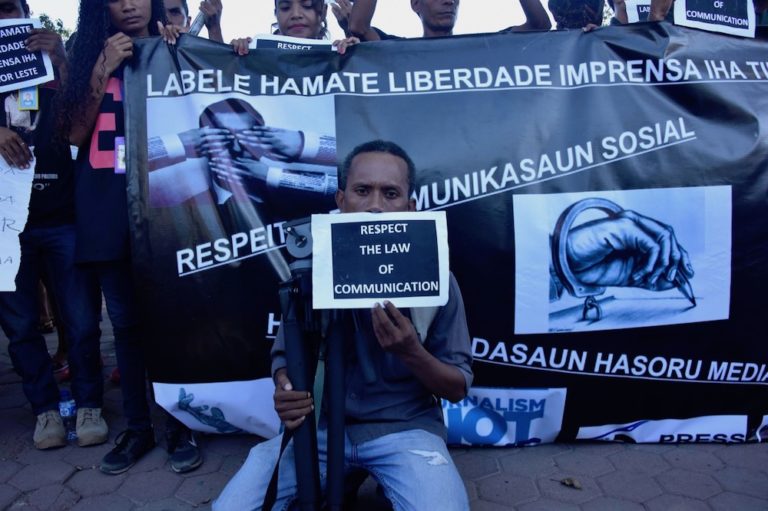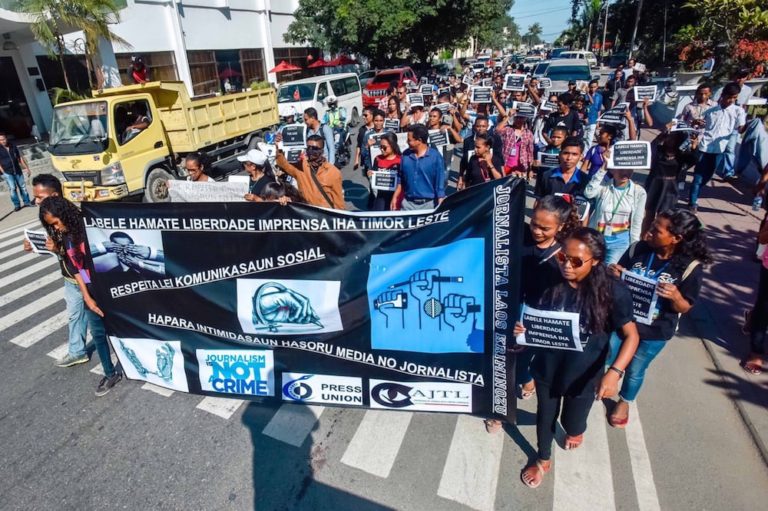(RSF/IFEX) – RSF has expressed concern over the arrest and detention of Australian investigative journalist Julian King, who has been threatened with legal action and expulsion. On 6 May 2004, police arrested the freelance journalist close to his home in the capital, Dili. He was held for two days in the central police station. Police […]
(RSF/IFEX) – RSF has expressed concern over the arrest and detention of Australian investigative journalist Julian King, who has been threatened with legal action and expulsion.
On 6 May 2004, police arrested the freelance journalist close to his home in the capital, Dili. He was held for two days in the central police station. Police said they found ammunitions during a search of his home.
During their search, police seized files, including a United Nations report on corruption in East Timor. King was first told his residency papers were not in order and he was subsequently threatened with legal action for “possessing weapons” and “subversion”.
Prime Minister Mari Alkatiri made several public statements against the journalist. “He is abusing our tolerance, he is not a journalist and he has his own agenda to subvert state institutions,” Alkatiri said. The prime minister also accused King of taking part in setting his home on fire during the December 2002 riots.
RSF said King’s arrest is the first major violation of press freedom since East Timor gained its independence in 2002.
“It is a real disappointment for our organisation to see the prime minister of a country – held up for several years as a model of respect for press freedom in Asia – accusing a foreign journalist of rioting and destabilisation,” RSF said in a letter to President Xanana Gusmao. The organisation urged him to intervene on behalf of King and to call on the prime minister to respect press freedom.
King, aged 43, a former Reuters correspondent who works regularly for Australian television stations, denied the accusations. “I certainly don’t own any bullets and I am certainly not out to destabilise the government,” he said.
King has worked in East Timor for four years and has been a long-term activist for the country’s independence.
Several sources told RSF that King’s arrest and the prime minister’s accusations against him may be linked to his investigations into the country’s negotiations with Australia on sharing East Timor’s territorial waters. The “Timor Gap” agreement allows Australia to exploit a major part of the area’s oil and gas reserves. Many East Timorese citizens objected to the agreement, which was reportedly tainted by corruption. President Gusmao himself has said he considers the contract to be “a threat” to East Timor’s existence.


